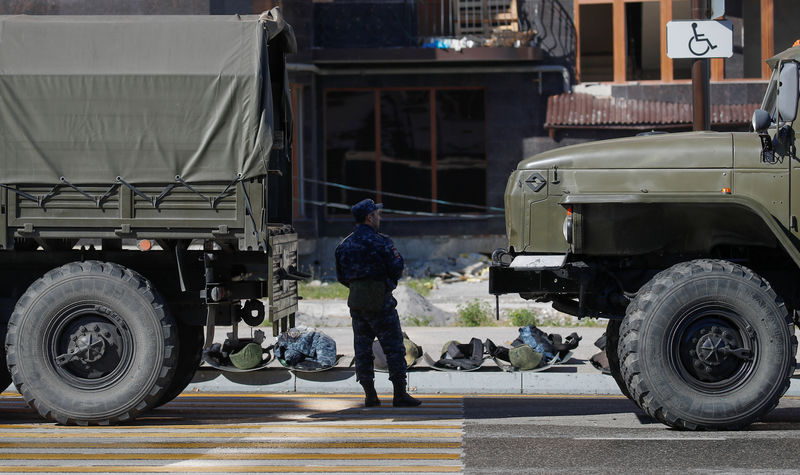By Maria Kolomychenko
MOSCOW (Reuters) - Russian authorities ordered two mobile operators to cut most access to mobile data services in the region of Ingushetia as protesters were massing outside government offices there, according to a document from the state telecoms regulator.
The Ingushetia case, the first time such an order has been documented in Russia, indicates Russia is restricting access to social media platforms such as Facebook (NASDAQ:FB) or Twitter so they cannot be used to organize anti-government protests.
The same techniques have been deployed in the Middle East where, faced with popular uprisings, governments have limited access to mobile data services, according to activists and mobile operators.
The document seen by Reuters, from the Ingushetia office of the Roskomnadzor regulator, states that 3G and 4G mobile Internet services were turned off in Ingushetia from Oct. 4 to Oct. 17 "on the basis of the justified decision of the law enforcement authorities".
The document did not mention the protests or say on what basis the law enforcement authorities took their decision.
The Federal Security Service and the Interior Ministry did not respond to requests by Reuters for comments. A spokesman for Roskomnadzor, in response to questions, did not say why the services were switched off in Ingushetia.
Protests broke out in Ingushetia, a mainly Muslim region in southern Russia, on Oct. 4 after a deal was agreed delineating Ingushetia's border with the neighboring Russian region of Chechnya.
The protesters said the deal conceded too much land to Chechnya, and thousands of them gathered in the region's administrative capital, Magas, to demand it be rejected. At one point, security forces fired into the air to try to disperse the protests.
From Oct. 4, phone users across Ingushetia complained about a lack of mobile internet services, according to lawyer Khusen Daurbekov. He said he was representing some of the complainants pro bono because he wanted to force the authorities to say why they restricted the mobile network.
Daurbekov filed a complaint to the local office of Roskomnadzor against two mobile operators, Megafon and Vimpelcom. The reply, from the head of the office, Aslan Koloyev, exonerated the operators and said the switch-off was requested by law enforcement.
GLOBAL BATTLEGROUND
Koloyev declined to comment and referred questions instead to the Roskomnadzor press office. Roskomnadzor representative Vadim Ampelonsky said only that the watchdog had found no violations by the mobile operators in Ingushetia. Vimpelcom and Megafon declined to comment.
While 3G and 4G services were switched off in Ingushetia, 2G services were still available. That meant people could still make voice calls from their mobile phones. In theory they could also have mobile access to the Internet.
In practice however, that access is very limited because speeds over a 2G network are low, and become even slower if a large number of people are gathered in one place, for example at a protest, overloading the network.
Control over social media has become a battleground in the past few years between governments around the world trying to keep a lid on dissent and citizens seeking to express grievances against their rulers.
During mass protests in Egypt in 2011 against the rule of then-President Hosni Mubarak, authorities told mobile operator Vodafone (LON:VOD) to switch off its network in Egypt, the company said.
When anti-government protests broke out in Iran in December 2017, authorities in Tehran imposed restrictions on messaging service Telegram and social media platform Instagram, which had both been used to mobilize protesters.

Under Russian law, telecommunications services can be switched off on the decision of the Federal Security Service, the Interior Ministry or other law enforcement agencies.